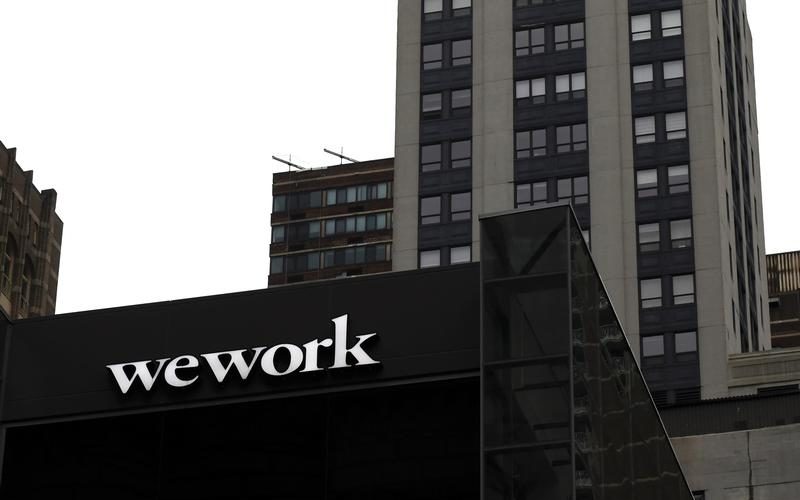BY ROBERT CYRAN
WeWork is wilting under public scrutiny. The office-sharing firm, which is now officially named The We Company, may slash its initial public offering valuation to less than half the $47 billion of its last funding round. That would demolish management credibility, and still be excessive given its conflicts of interest, cash burn and unproven business model.
Valuing a tech-tinged real estate company with rapid growth and massive losses has always been a bit chimerical. Japan’s SoftBank invested $2 billion into WeWork in January, some of which was at a $47 billion valuation. By that standard, seeking an IPO valuation as little as $20 billion is a huge comedown. Yet that would be in line with the $21 billion worth set by a previous funding round in 2017. The trouble is even the new low figure may be too high.
Sure, WeWork is growing quickly, with revenue doubling to $1.5 billion in the first six months of this year from the same period last year. But operating losses grew even faster, to $1.4 billion. Deliberately slowing growth might turn its negative EBITDA positive, and let cash begin to flow, but that’s uncertain. Rival IWG is valued at only 10 times EBITDA over the last 12 months. By that yardstick, even a generous adjustment of WeWork’s negative EBITDA would struggle to justify a valuation of much more than $15 billion.
Other aspects of WeWork are just as unappealing, such as its renting of buildings part-owned by Chief Executive Adam Neumann. The firm’s business model of leasing buildings and subleasing space may suffer in a downturn. And IPO investors will have little say in how the firm is run, given insiders control of supervoting stock.
It’s worth asking why the company is even trying to go public. This is a capital-intensive business. In addition to operating losses, WeWork had over $2 billion in capital expenditure last year. Neumann has already tapped private investors worldwide, and $6 billion in debt financing is contingent on doing an IPO. As if that isn’t enough to give investors pause, slashing the valuation means the company will raise less cash unless insiders surrender more equity.
Until WeWork can show it is managed responsibly and has a path toward profitability, it’s better suited for more forgiving private investors.
First published Sept. 5, 2019
(Image: REUTERS/Mark Makela)
